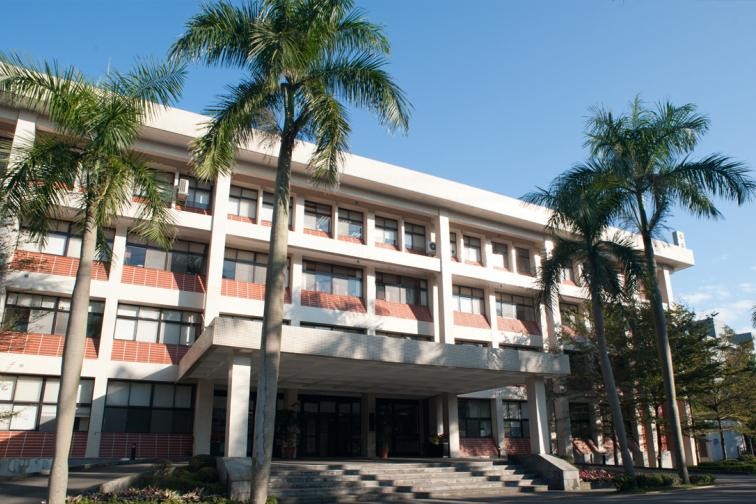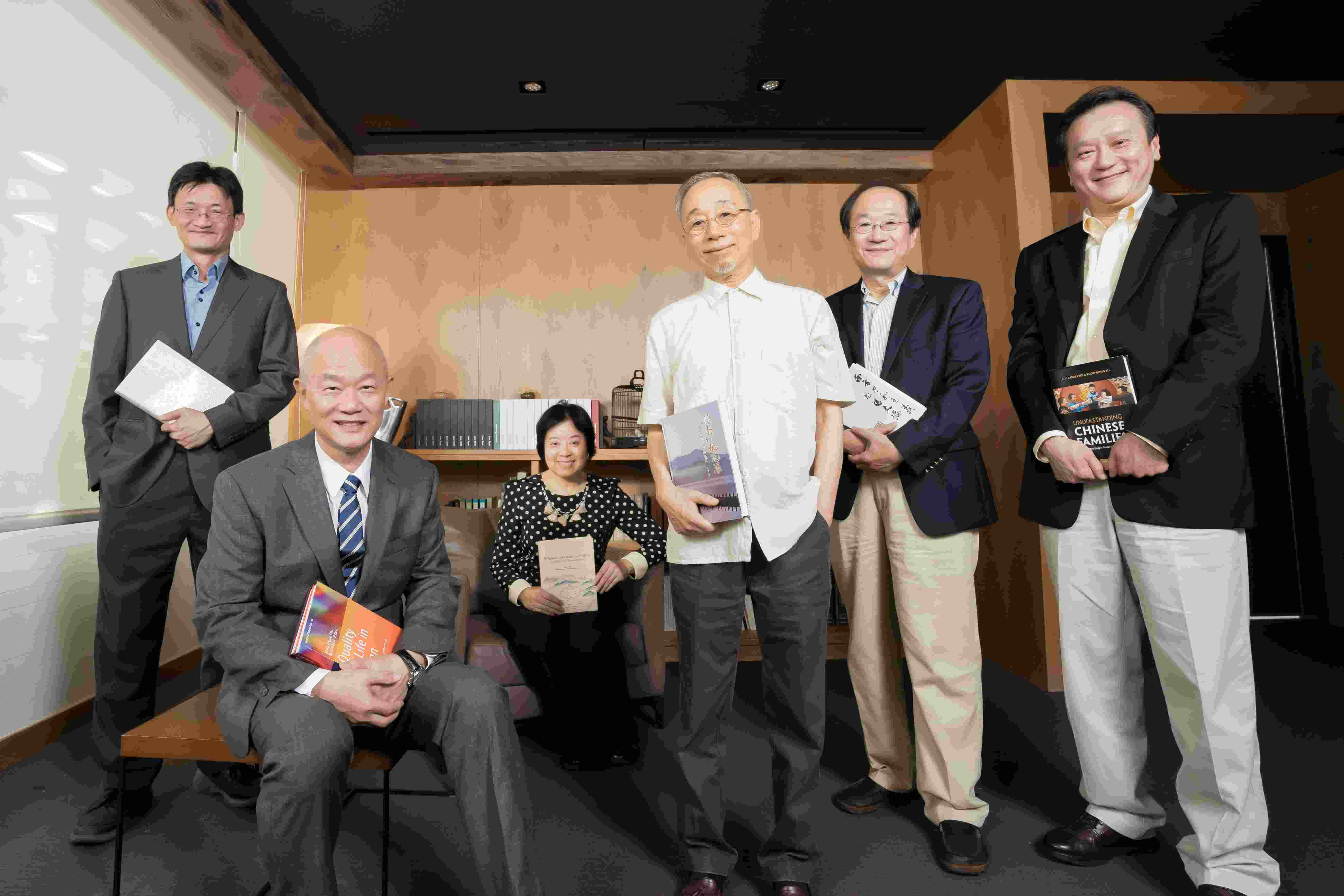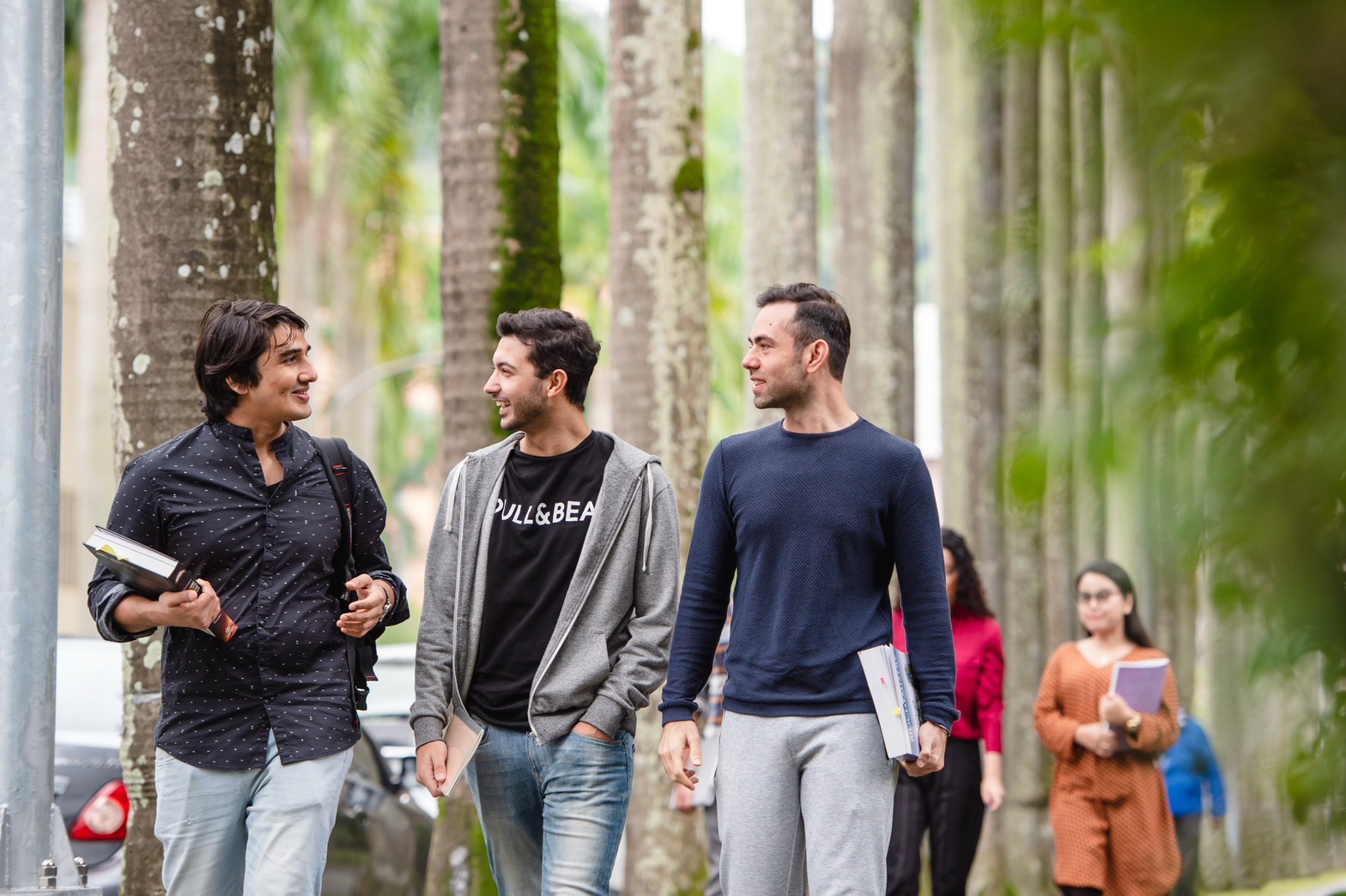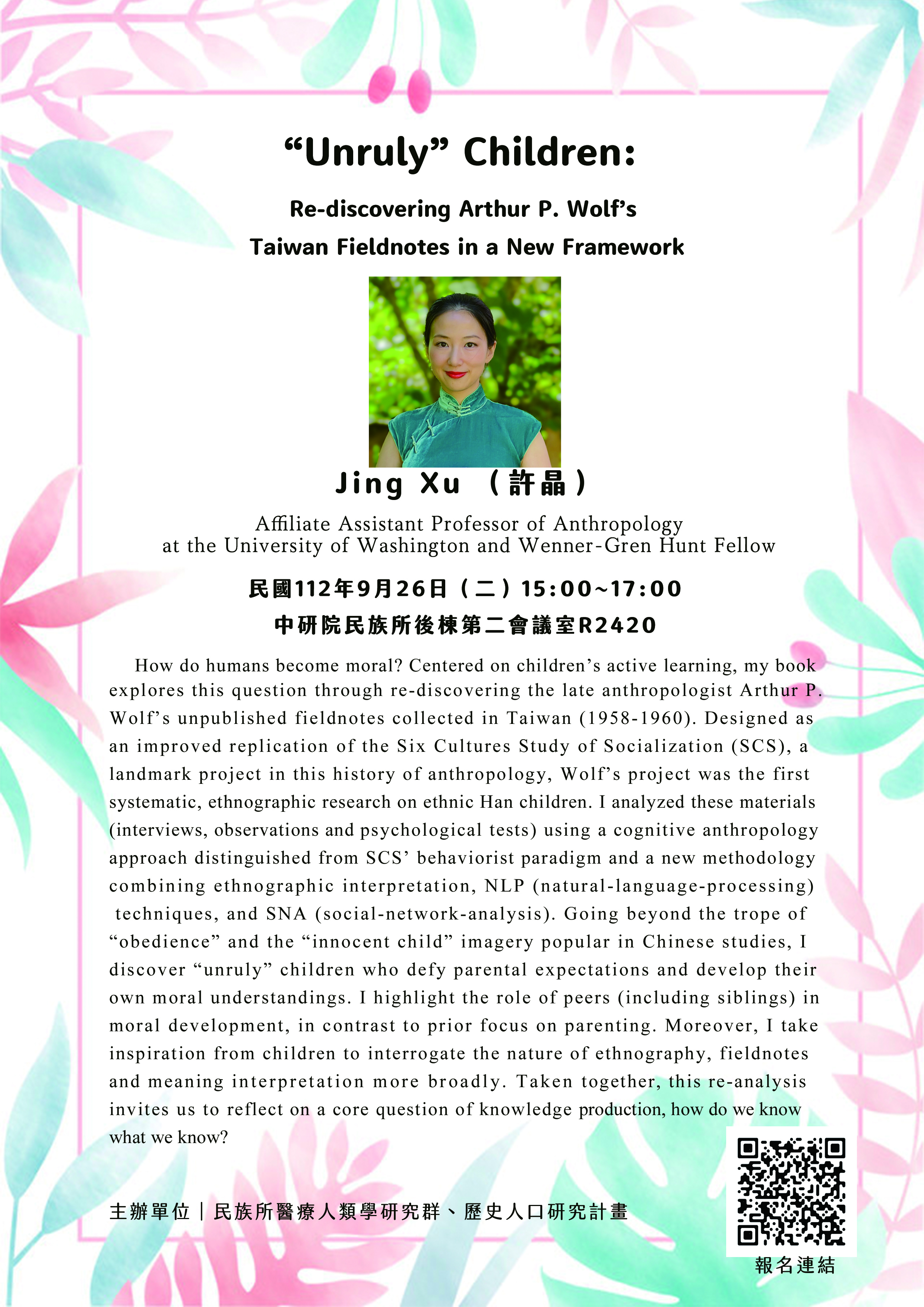- 演講或講座
- 民族學研究所
- 地點
本院民族所後棟第二會議室R2420
- 演講人姓名
Jing Xu(許晶) Affiliate Assistant Professor of Anthropology at the University of Washington and Wenner-Gren Hunt Fellow
- 活動狀態
確定
- 活動網址
【醫療人類學研究群、歷史人口研究計畫演講】
講題:"Unruly" Children: Re-discovering Arthur P.Wolf's Taiwan Fieldnotes in a New Framework
講者:Jing Xu(許晶) Affiliate Assistant Professor of Anthropology at the University of Washington and Wenner-Gren Hunt Fellow
日期:2023-09-26(二)15:00-17:00
地點:中研院民族所後棟第二會議室R2420
主辦單位:醫療人類學研究群、歷史人口研究計畫
報名連結:https://forms.gle/HTuJ3BaGwzmbSpfp6
報名期限:2023年9月20日(三) 23:00止
聯絡人:助理呂函螢
02-26523431,medanth@sinica.edu.tw
演講摘要:
How do humans become moral? Centered on children’s active learning, my book explores this question through re-discovering the late anthropologist Arthur P. Wolf’s unpublished fieldnotes collected in Taiwan (1958-1960). Designed as an improved replication of the Six Cultures Study of Socialization (SCS), a landmark project in this history of anthropology, Wolf’s project was the first systematic, ethnographic research on ethnic Han children. I analyzed these materials (interviews, observations and psychological tests) using a cognitive anthropology approach distinguished from SCS’ behaviorist paradigm and a new methodology combining ethnographic interpretation, NLP (natural-language-processing) techniques, and SNA (social-network-analysis). Going beyond the trope of “obedience” and the “innocent child” imagery popular in Chinese studies, I discover “unruly” children who defy parental expectations and develop their own moral understandings. I highlight the role of peers (including siblings) in moral development, in contrast to prior focus on parenting. Moreover, I take inspiration from children to interrogate the nature of ethnography, fieldnotes and meaning interpretation more broadly. Taken together, this re-analysis invites us to reflect on a core question of knowledge production, how do we know what we know?









 首頁
首頁

